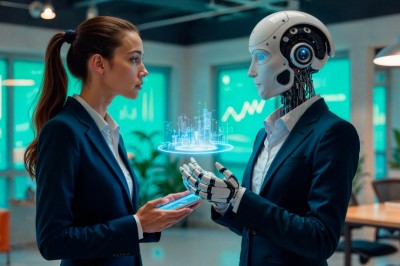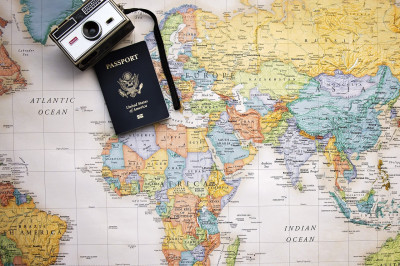The advent of Recruiting Automation and AI Adoption in the realm of talent acquisition marks a pivotal shift toward more efficient, effective, and strategic hiring processes. These technologies, by automating repetitive tasks and leveraging advanced data analysis, are revolutionizing the way companies approach recruitment, from the initial candidate search to the final hiring decisions.
The Impact of Automation and AI on Recruitment
Streamlining Repetitive Tasks: At the heart of recruitment automation is the simplification of time-consuming tasks such as resume parsing, job posting across various platforms, and initial candidate screenings. Automation tools are designed to handle these processes swiftly and accurately, freeing up recruiters' time to focus on more nuanced aspects of the hiring process, such as candidate engagement and interview preparation.
Enhancing Candidate Engagement: AI-driven platforms are increasingly capable of personalizing the recruitment experience for candidates. Through AI algorithms, companies can now tailor their communications based on candidate preferences, past interactions, and even predict the types of roles that may be of interest to them. This level of customization not only improves the candidate experience but also strengthens the employer brand in the competitive job market.
Improving Hiring Metrics: One of the most tangible benefits of recruiting automation and AI is the significant improvement in key performance metrics. Technologies like AI-powered chatbots and automated scheduling tools reduce the time to hire by facilitating quicker interactions and streamlining the interview process. Similarly, AI can enhance the quality of hire by providing deeper insights into candidates' skills, cultural fit, and potential long-term success within the company.
Facilitating Strategic Decision-Making: Beyond operational efficiencies, AI in recruitment plays a critical role in strategic decision-making. Predictive analytics, for instance, can forecast future hiring needs based on business growth patterns, turnover rates, and market trends. This predictive capability enables companies to proactively plan their talent acquisition strategies, ensuring they have the right talent in place to meet evolving business objectives.
Enabling More Precise Hiring Outcomes: AI's ability to analyze vast amounts of data also leads to more precise hiring outcomes. By evaluating candidates against a broader range of criteria—including soft skills, cultural fit, and potential for growth—AI provides a more holistic view of each applicant. This comprehensive approach reduces biases and enhances the likelihood of finding the right candidate for each role.
Challenges and Considerations
While the benefits of recruiting automation and AI are clear, there are challenges and ethical considerations that companies must navigate. Issues such as data privacy, potential biases in AI algorithms, and the need for human oversight in automated processes are critical concerns. Ensuring that AI tools are transparent, fair, and aligned with the company's values is essential for their successful integration into the recruitment process.
Additionally, the human element of recruitment remains irreplaceable. Technology can streamline and inform the hiring process, but the final decisions should reflect a combination of AI insights and human judgment. Balancing technological efficiency with empathy and personal engagement is crucial for maintaining the integrity of the recruitment process.
Artificial Intelligence (AI) is significantly transforming the recruitment process in various ways, making it more efficient and effective. Here are several examples where AI is automating the recruitment process:
1. Resume Screening and Parsing
AI-powered tools can automatically screen and parse resumes, extracting essential information such as work experience, skills, and education. This automation significantly speeds up the initial stages of the recruitment process by identifying the most qualified candidates from a large pool of applicants without manual intervention.
2. Candidate Sourcing
AI algorithms can search through online profiles, databases, and career portals to identify potential candidates who meet specific job requirements. These tools can even engage passive candidates by automatically sending personalized messages to initiate contact.
3. Chatbots for Candidate Engagement
AI chatbots are increasingly used to interact with candidates during the application process. They can answer FAQs, provide updates on application status, and even schedule interviews. This constant engagement ensures a positive candidate experience and reduces the administrative burden on recruiters.
4. Automated Interview Scheduling
Coordinating interviews can be a time-consuming task. AI-driven tools can automate this process by matching candidates' and interviewers' availability, sending out invites, and even rescheduling if necessary. This automation streamlines the interview process, making it more efficient for both candidates and hiring teams.
5. Video Interview Analysis
Some AI tools can analyze video interviews to assess candidates' non-verbal cues, such as facial expressions, tone of voice, and body language. This analysis can provide additional insights into candidates' personalities and soft skills, aiding in the decision-making process.
6. Candidate Scoring and Ranking
By leveraging machine learning algorithms, AI tools can score and rank candidates based on their suitability for a role. This process considers various factors, including skills match, cultural fit, and past work experiences, helping recruiters focus on the most promising candidates.
7. Onboarding Automation
Once a candidate is hired, AI can also automate aspects of the onboarding process. This includes sending out welcome emails, providing necessary paperwork, and guiding new hires through company policies and procedures. Automation ensures a smooth transition for new employees and reduces the workload on HR departments.
8. Predictive Analytics
AI can analyze data from past recruitment cycles to predict future hiring needs, identify potential skill gaps, and even forecast turnover rates. This predictive capability allows companies to proactively plan their talent acquisition strategies and stay ahead of workforce trends.
These examples highlight how AI is streamlining the recruitment process, from candidate sourcing to onboarding. By automating repetitive tasks and providing data-driven insights, AI enables recruiters to focus on more strategic aspects of their role, such as building relationships with candidates and enhancing the overall hiring experience. As AI technology continues to evolve, its impact on recruitment is expected to grow, further transforming how companies attract, hire, and retain talent. FD Capital are a leading recruiter and specialise in Executive Recruitment, if you need an AI savy outfit to work with reach out to them today.
The Future of Recruitment
Looking ahead, the role of automation and AI in recruitment is set to expand further. Innovations in natural language processing, machine learning, and predictive analytics will continue to refine and enhance the capabilities of these technologies. As companies worldwide adopt these tools, the recruitment landscape will evolve into a more efficient, candidate-centered, and data-driven environment.
The push towards Recruiting Automation and AI Adoption signifies a transformative period in the field of talent acquisition. By embracing these technologies, companies can not only optimize their recruitment processes but also gain strategic insights that drive better hiring decisions. As we move forward, the integration of AI and automation in recruitment will undoubtedly continue to shape the future of work, heralding a new era of efficiency, engagement, and strategic talent management.












































